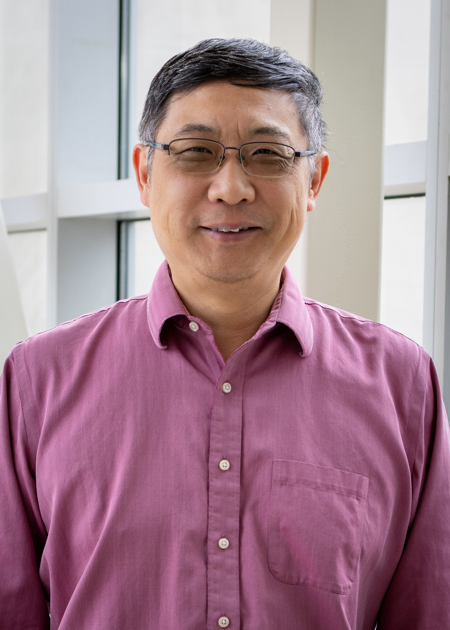Kefei Yu
Professor, Department of Microbiology, Genetics, & Immunology
Faculty, Genetics & Genome Sciences Program
Faculty, Cell & Molecular Biology Program
Professor, BioMolecular Science Gateway
Location: 5175 Biomed Phys Sci
Phone: 517-884-5354
Email: yuke@msu.edu
Bio
###Education B.S., 1992, Biochemistry, Nanjing University, China Ph.D., 2000, Microbiology and Molecular Immunology, University of Southern California Research Associate, 2001-2007, Norris Cancer Center, University of Southern California ###Research 1. DNA recombination and DNA repair 2. Transcription and regulation of gene expression 3. Chromosomal translocations and genomic instability The Yu lab studies DNA recombination and DNA repair in immune cells in association with antigen receptor gene diversification. This includes the site-directed V(D)J recombination that assembles the antigen binding domain of the immunoglobulin (Ig) and T cell receptor genes; and a region-specific class switch recombination (CSR) that changes the Ig constant region. Both events involve DNA double strand break intermediates that, if not repaired properly, can cause chromosomal deletions or translocations. CSR is an intra-chromosomal deletion in antigen-stimulated B cells that allows Ig isotype switching from IgM/IgD to IgG, IgA or IgE. Failure of CSR leads to hyper-IgM syndrome. Dysregulation of CSR contributes to oncogenic chromosomal translocations frequently observed in B cell lymphomas. CSR is directed by large repetitive DNA regions (2~12kb) that lack extensive homology or conserved signal sequences. Another process also occurring in stimulated B cells is somatic hypermutation (SHM), which mutates the Ig variable regions to allow Ig affinity maturation. Like CSR, defective SHM leads to immunodeficiency, and aberrant targeting of SHM to non-Ig genes can produce oncogene mutations or chromosomal translocations in various types of B cell malignancies. Both SHM and CSR are initiated by a lymphoid specific factor called activation-induced cytidine deaminase (AID) that catalyzes DNA cytosine deamination at Ig variable and switch regions, respectively. AID is a small protein that shares homology to a large family of polynucleotide cytidine deaminases. Members of this family have diverse functions in RNA editing, gene conversion, Ig diversification, and host defense against retroviral infections. We are currently focusing on studying: (1) the targeting mechanism and regulation of AID. (2) the mechanism of generating DNA breaks at switch regions during B cells class switch recombination. (3) the repair of switch region DNA breaks and their involvement in oncogenic translocations.
Courses
- BMB 490: Biochemistry Research
- MGI 499: Undergraduate Research
